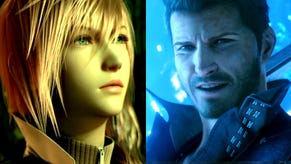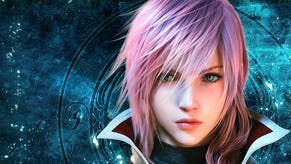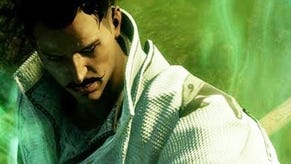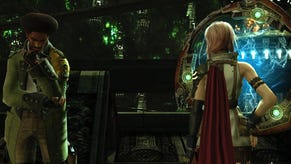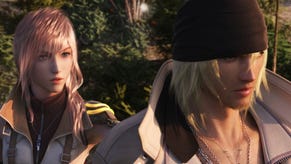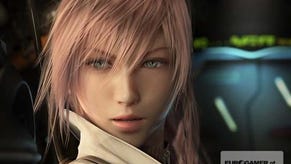Final Fantasy XIII
Experience.
Square Enix's developers would also argue that if it's good enough for Modern Warfare or God of War, it's good enough for Final Fantasy, and to some extent they'd have a point. When Final Fantasy XIII is at its best - when the simple tactical brilliance and snappy, intoxicating pace of the battle system asserts itself; when the storyboard is shovelling breathtaking, colour-soaked vistas, inconceivable monsters and sumptuous video at you faster than you take it in - the last thing you have on your mind is wandering off a path that's not been beaten so much as carpeted in gold leaf.
But it isn't always at that best. There are one or two drab environs crammed with too many samey encounters, and what's worse, these come early in the game when you're existing on a gameplay diet that is thin indeed, with only the most basic features available. Bizarrely, there are also impractically lavish locations in which there is nothing to do but wander around and listen to the insane number of audio soundbites provided for a milling cast of thousands. All it takes is for the pacing to be a little off for that gilded path to become a gilded cage, and the few avenues of interaction open to you to feel claustrophobically narrow.
Pacing, in fact, is everything that's right and wrong with Final Fantasy XIII. In terms of the locations, the story, the character advancement and the unfolding of the game's systems, it's best described as a lumpy crescendo, with painful longeurs at the start gradually, oh so gradually, giving way to satisfying pay-offs.
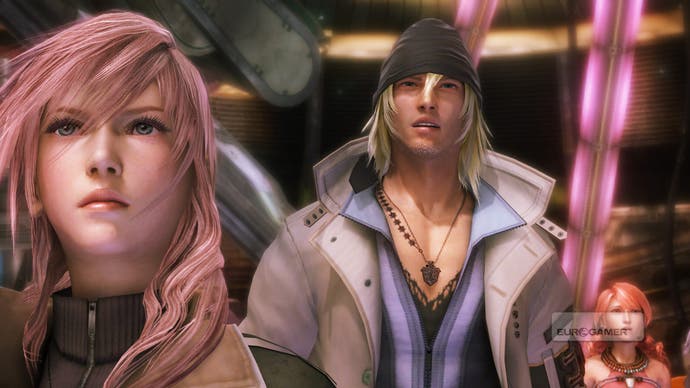
The first half is spent in the appropriately named sky-world Cocoon, a rich but oppressive society and the most aggressively futuristic, science-fiction milieu yet for Final Fantasy. The barbaric otherworld of Pulse is spoken of with fear, and anyone who comes into contact with it - which includes all our heroes - is "purged". At the game's midpoint, you reach Pulse - a world of natural wilderness, dinosaurs and creaking steampunk tech - and the contrast isn't just stylistic. It coincides with the game finally offering up an open play-field and the option of taking time off from the main story to do some questing, exploration or even grinding.
The effect is so dramatic, so deliberate and so carefully metaphorical that it goes a long way towards justifying the long, long wait. In fact, it even overstates the charms of Pulse somewhat - it's a beguiling place and a glorious change of pace, but it won't be that long before you're back on the hamster-wheel of story, and secretly not minding that much at all.
That story concerns a bunch of Cocoon misfits who, for various and mysterious personal reasons, end up in contact with a fal'Cie - one of this world's demigods - from Pulse. This makes them l'Cie - magic-wielding agents of the gods - and enemies of their own world, Cocoon (or so it seems). It's typically soapy nonsense, and it has to be said that the basic, gauche lines of dialogue don't come across nearly so well in fully-voiced cinematic presentation as they used to in little blue text boxes with some dots and exclamation marks at the end.
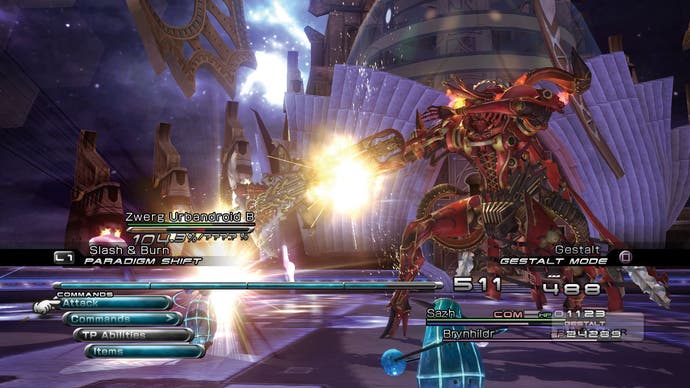
That said, the way the characters' intersecting stories are revealed in flashback is artful, the thumping twists and revelations arrive with appropriate force, and the CG action scenes are dependably jawdropping. The cast isn't the most charming in Final Fantasy history - Tetsuya Nomura's character designs seem calculating and stereotyped, if unimpeachably good-looking - so it's all the more surprising to feel genuine affection developing for most of them over the course of the game, from stiff military poster-girl Lightning to blaxploitation refugee Sazh - even the standard-issue simpering JRPG moppet Hope turns likeable. The English (well, American and Australian) voice cast mostly do a great job with what they have to deliver.
The storyline has an obsession with pairing them off with each other during the early stages, which might help define the characters but has an unfortunate ramification for gameplay. Although each character can ultimately learn any of the game's six classes, they're initially limited in what they can do, and some pairings work better than others (Sazh and sweet-girl-with-a-secret Vanille give good odd couple in the cut-scenes but have no chemistry on the battlefield). The excellent battle system is designed for a trio and needs three to really sing, but opportunities to experience that before the magic halfway mark are scarce. It's one of several examples of Final Fantasy XIII being so careful not to overwhelm the player that it underwhelms instead.


